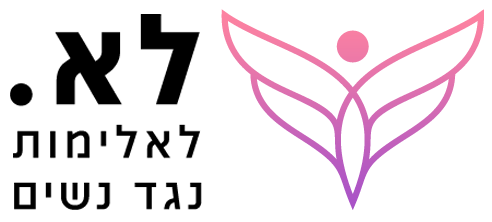My name is Olga. I arrived at the shelter for battered women with my three children in 2016. I was referred to the shelter by the Center for Domestic Violence because of severe violence from my husband. the director decided I was at great risk.
We were registered with the Ministry of Welfare, but they were unaware of the violence. For years I took it and was afraid to complain because I am not an Israeli citizen. My husband would say that “You are nothing here and they’ll take the children from you.” Even an attorney with whom I consulted suggested that I “sit quietly” and not complain so as not to be deported. So I sat quietly.
But then there was an event that I realized if I kept quiet, he would kill me. I came to Israel in 2005 from the former Soviet Union. I come from a warm and loving family. My parents hadn’t much money, but they did give love and support. I was well educated. When I arrived at the shelter, I had been enrolled in academic studies. I was forced to leave because there was a great risk that my husband would arrive at the school to harm me. I still remember the conversation with the shelter’s director where she made me understand that I couldn’t continue to study, and the great pain this caused me.
My husband was born in 1970, and made aliyah to Israel from the former Soviet Union in 1987. We met on the Internet and then he came to visit me. We went out and traveled for a few months in different parts of the world. I was in love, and he promised me the whole world. He gave me and my family great respect. We married in Cyprus and decided to live in Israel. And then everything changed: right from the beginning of our marriage Sergei became violent (mostly emotional and verbal violence). His family also became entangled in our disputes. They would threaten and harass me. When I was pregnant, his mother even hit me and threw a chair at me. After I made a complaint, his family members threatened me and requested custody of the children.
The family dynamics were difficult. In the beginning he just spoke rudely and threatened, but after our son was born, he also began to physically abuse me. He would slap me, throw things at me, extinguish cigarettes on my body; once he bashed my head on the TV. Besides all that, he never helped me with the children. I was the only one to take care of them: he slept most of the time.
In the shelter
In the shelter I received a great deal of help. During the first months I couldn’t stop crying, but the staff at the shelter held me and comforted me. Little by little, we began to make a plan for my life. I felt that finally I was understood and was being helped. In the beginning I was skeptical, but as time went on I learned to believe and to trust. There were sessions with the social worker that helped me to understand what I had been going through. I learned that I was not alone as there are many women suffering from violence. Here I was able to talk about my experiences, shed tears about them and grieve. Yet I grew stronger and eventually began to plan my future. I realized how much strength I really had. I remembered how much talent I have and how intelligent I am. All the years that I suffered from being debased and the violence, I had forgotten to believe in myself and the beauty I have inside.
From the social worker I received all the necessary information about my rights. And an attorney was assigned to represent me, who is still working with me. I was eligible for aid from the Housing Authority and other benefits. There was also a social worker for my children who helped me with all their issues and also with my parenting skills.
I am no longer in the shelter. I do sometimes remember all that I’ve been through: the pain I experienced, the woman I was. But I am stronger now, more able to cope, and I don’t agree to live one more minute with violence. I was first afraid to take the step of going to the shelter, but the shelter saved my life. Today I try to speak out wherever possible to spread the message to those women who are living with domestic violence and encourage them to break free. I tell them to get out in order to continue with their lives. It’s possible to leave an abusive husband and build a better life without violence.
I am currently working, am receiving help to obtain a driver’s license, have taken a self-defense course, and I know I can turn to others for help. I know I have rights, and I am not afraid to ask for them. Not all is rosy; there are difficult moments, but it is all worth it. If I hadn’t taken the step to leave, I would be in my grave now.

